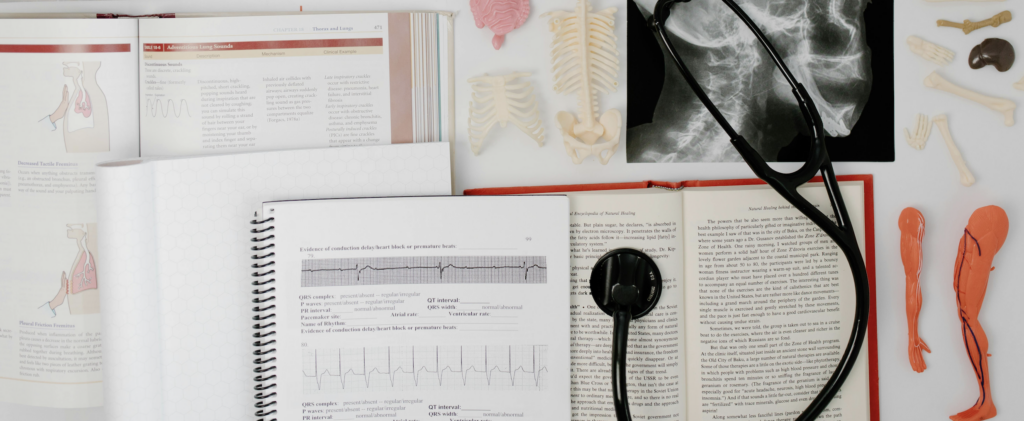Starting medical school can be thrilling and daunting. It’s a time filled with excitement, challenges, and, let’s be honest, a fair amount of stress. As a current medical student, I recognize how crucial it can be to set the stage for a successful first year. Here are seven crucial tips I wish I had known before starting, and I hope you find them helpful.
Review top lines of credit for Canadian med students, covering interest rates, borrowing limits, credit card rewards like insurance and lounge access, plus student-focused banking benefits.
1. Improve Your Time Management Skills
While some might think Anki or Amboss is the most valuable, time is truly the most important resource. The sheer volume of material we are expected to cover can be overwhelming, often described as “drinking out of a firehose”. It’s easy to feel like there aren’t enough hours in the day to accomplish everything you need to do.

Prioritize Tasks
Use tools like Notion, Obsidian, Google Calendar, or other apps to organize your schedule. Identify urgent tasks and differentiate them from those that can wait and break down large projects into more manageable steps.
Set Realistic Goals
Try to set specific, achievable goals each day. For instance, instead of setting “review cardiology” as a task for the day, be specific and set a goal to “review atrial fibrillation and secondary hypertension causes”. Consistently ticking off achievable small tasks helps maintain your motivation.
Learn to Say No If You’re Overcommitted
It is very easy to over-commit to every club, event, or research project you come across. Recognize your limits and focus on activities that actually align with your interests and goals. You don’t need to be an executive of the ophthalmology club if your goal is to become a pediatrician. Don’t be afraid to decline invitations that might stretch you too thin.
2. Develop Effective Study Habits
The way you study in medical school versus the way you studied in university will be drastically different. A 3-month biochemistry college course may be covered in just 1-2 weeks in medical school. The volume and complexity of the material require a more nuanced approach.
Use Active Learning Instead of Passive Learning
Try to actively recall the material rather than highlighting, passively reading, or listening. Spaced repetition, practice questions, and teaching the material to others are more effective strategies for retention and understanding. Consider using Anki, a popular medical school flashcard app to aid with memorizing dense information.
Find Your Study Style That Works For You, and Stick With It
The method you used in college may no longer work in medical school. Experiment with different study methods e.g. flashcards, group studying, mnemonics, or drawing diagrams. Find what works best for you and make sure to stick with it.
Review Regularly Over a Long Period of Time
Regularly revisiting material ensures it stays fresh in your memory. Instead of cramming before exams, try to review notes weekly. Information will stick better the more repetitions you put in.
3. Limit Distractions
Choose a quiet, consistent area for studying. Whether at home, a coffee shop, or at the library, ensure it’s free from interruptions.
Create a Dedicated Study Space
In a world with social media and countless apps at arm’s length, it’s easy to be distracted by trivial things. Find ways to “dial-in”, focus, and identify and limit the distractors in your life.

Minimize Digital Distractions
Consider using apps that block access to social media or non-essential websites during study periods, such as Forest (a favourite app of mine). Simple strategies like turning off notifications or placing your phone out of reach can also be highly effective. Extreme measures include deleting common culprits for distraction, such TikTok, Twitter, Reddit, and other forms of social media.
Looking to use your phone to be more productive? Check out the best apps for medical students.
4. Build a Support Network
Having a strong support system can make a significant difference in your medical school experience. You will have great days and terrible days, so surround yourself with people who can understand the journey, celebrate the good, and support you through the rough times.
Connect with Classmates
Your peers are going through the same challenges, and building relationships with them can provide necessary academic and emotional support. Study groups, social events, and casual meetups are great ways to meet new people.
Seek Mentors
Establish relationships with faculty members, older students, or healthcare professionals who can offer advice and support through medical school. A network of support is often crucial for understanding the nuances to matching to more competitive specialties.
Stay Connected with Loved Ones
Maintaining relationships outside of the medical bubble is important for balance. Your life is not just medicine, so keep in touch with your non-medical family and friends. They offer important perspective and remind you of a life beyond just school.
5. Take Care of Your Mental and Physical Health
Medical school is a marathon, not a sprint. Find healthy ways to alleviate stress and learn how to prioritize your health when you need it.
Exercise Regularly, Even If Only for a Few Minutes
Whether you’re a gym-rat or not, even a short daily workout can improve your focus and energy levels. The key is to find something you enjoy. Whether it’s walking, running, yoga, team-sports, or a quick gym session, get into the routine and try to put a little bit of time into your physical health each day.
Get Enough Sleep Each Night
Though staying up late is impossible to avoid at times, try to aim for a consistent 7-8 hours of quality sleep each night. You’ll find that you’ll have better information retention, more energy, and have increased productivity.
Try Your Best to Eat Healthy
When you’re stressed or constrained for time, it’s easy to not cook or eat healthy. You’ll find that learning about things like clogged arteries, diabetes, and heart attacks will already subconsciously influence your habits. However, try to be proactive and make healthier food choices.

6. Embrace the Learning Curve
Medical school is designed to challenge you. It’s normal to feel like a bit of an “impostor” at times. Enjoy the learning process! Change occurs slowly day by day, and over a longer period, you will eventually see how far you’ve come.
Be Patient With Yourself
Medicine is a vast field, and it’s expected that you’ll take time to master the material. You won’t know everything right away, and that’s okay. Be patient with yourself.
Learn From Your Mistakes
You will make mistakes at some point. Instead of dwelling on them, use them as opportunities to improve. Reflect on what went wrong, seek feedback, and apply those lessons moving forward.
Celebrate Small Victories
Whether it’s mastering a difficult medical concept or surviving a tough week, celebrating these moments can boost your morale and keep you motivated.
7. Stay Curious and Passionate
Amidst the pressure and workload, it’s important to remember why you chose this path in the first place. Keeping your curiosity and passion alive will help you stay motivated through the toughest times.
Engage with Material Outside the Classroom
Explore topics that genuinely interest you, even if they’re not part of your core curriculum. Attend additional lectures, read relevant articles, and seek out pre-clerkship electives or shadowing opportunities to deepen your passion for medicine.
Volunteer or Get Involved in Research
Participate in activities that resonate with your interests, such as community outreach, clinical volunteering, or research. These experiences can rekindle your enthusiasm and give you a renewed sense of purpose.
Looking to get involved in research? Check out our guide to finding research positions for pre-med and medical students.
Reflect on Your Journey
Burnout in medical school is inevitable. In those moments, it’s important to pause and remember why you chose to become a physician. Revisiting your initial motivations can help maintain focus for your goals.
Final Thoughts
Your first year of medical school will be a time of significant growth and adjustment. Unlike the slower-paced, didactic style of learning in college, medical school will challenge your ability to learn and retain large amounts of information quickly.
Focus on learning effective time management, developing effective study habits, limiting distractions, taking care of your health, building a support network, embracing the learning curve, and staying passionate. You’ll not only survive but thrive in this challenging environment. I have all the faith in you—don’t forget to enjoy the adventure!
Wondering which high-paying specialties are hardest to get into? Find out in the most competitive medical residency specialties in Canada.








